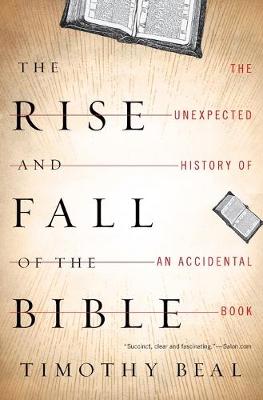One of the arguments the author makes is that because we often tend to approach the Bible with a set of preconceived ideas or notions of what to expect, we miss out on so much, because we fail to face up to what the Bible really is. My favourite quote, in regards to this idea, comes from page 27:
There is no way to grow and mature in one's faith without wrestling with the ideas and traditions that one has inherited. No one else can do it for you - not parents, not ministers, not youth group leaders, not professors, not Bible publishers. The iconic idea of the Bible as a book of black-and-white answers encourages us to remain in a state of spiritual immaturity. It discourages curiosity in the terra incognita of biblical literature, handing us a Magic 8 Ball Bible to play with instead.
There is so much I could write about this book, but rather than doing too much of this, I'd recommend that you read it. It's not a long book, making you wish that it would end soon. If anything, I found myself wanting more when I got to the end. I borrowed this copy from our local library, but I know that I'll need to get my own copy soon, because it's a book I'll need to return to at some time.
The best thing about this book is that it allows the reader to honestly ask some questions that they may have found hard to express, perhaps because they have been taught more what to think than how to think. This allowance of asking questions shouldn't lead to a lessening of one's faith, as some may suggest, but should help bring depth, understanding, and maturity to one's faith.
Read this book! Even if you don't agree with all that the author has written, it will hopefully bring you to a point where you begin to question why you believe what you believe. It may also bring you to the point where you realize that questions or doubts are not wrong, but are helpful on your life journey and can lead to a better, even, deeper understanding and experience of your faith.
